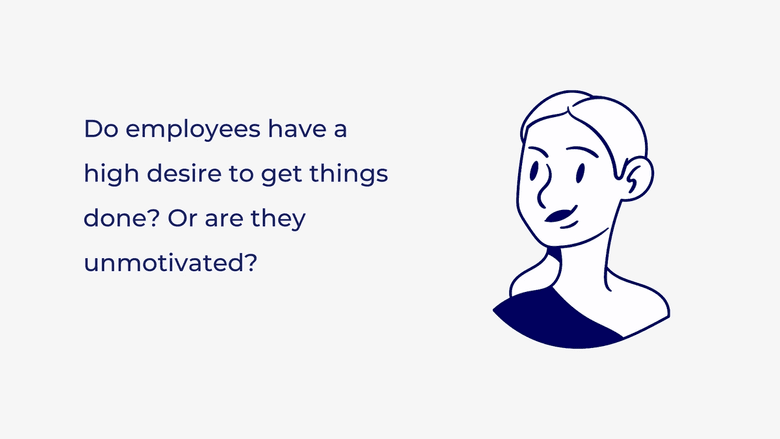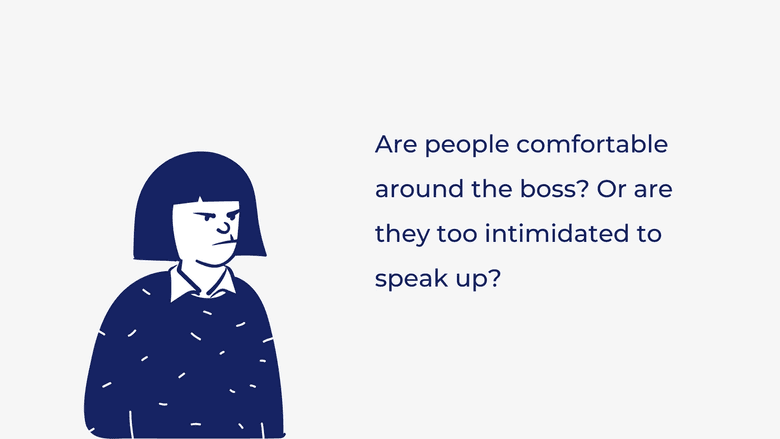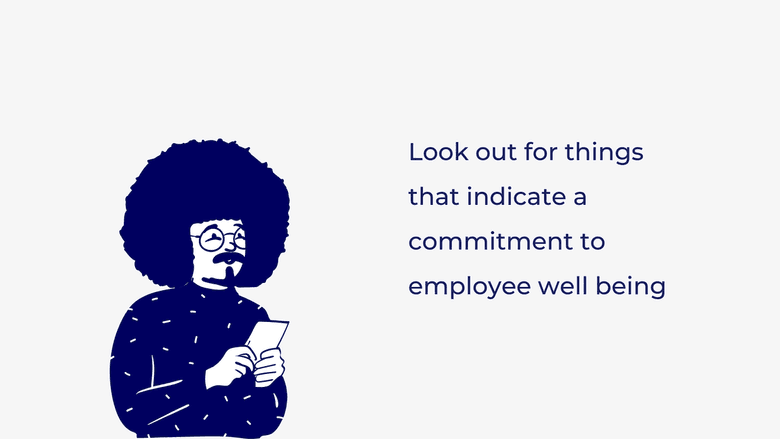How to Identify a Toxic Work Culture
Before you accept a job offer, look out for these red flags
A toxic workplace is an environment plagued by conflict, drama and unhappy team members. While toxicity usually comes from the leadership team, it can stem from a range of factors, from micromanaging employees who are lower on the totem pole to far more serious things, like recurring incidents of sexual harassment going uninvestigated.
Leaders love to talk about fostering a positive work culture—especially during the hiring process—but sometimes, even well-intentioned policies can backfire. In fact, some tech giants that advocate for a strong company culture have been the worst offenders when it comes to toxic work environments. At Netflix, practices like “sunrising” (publicly confessing your mistakes in front of hundreds of your colleagues) and “farming for dissent” (asking your coworkers to criticize your ideas) were often seen as humiliating. Meanwhile, an infamous Google company policy encourages employees to “Bring their whole selves” to work rather than keep their politics and personal lives private, a practice that has turned Google into a highly politicized workplace.
Many smaller companies have tried to emulate these headline-making strategies to boost productivity and employee engagement. The bottom line is, toxic organizational culture is popping up everywhere. The signs aren’t always extreme—but it can make everything harder, from getting critical approvals to move forward with a project to landing a promotion. In fact, three out of 10 people report that their workplace culture makes them irritable at home.
How do I Assess Company Culture?
Before you agree to work somewhere, it's good (and perfectly normal) to learn about the organization's culture, from core values to management style to work-life balance.
Throughout the application process, don’t be afraid to interviewer about these things. Pay close attention to how they respond. If they seem baffled or irritated by your questions, that's usually a negative sign. A company that treats employees fairly understands that cultural fit goes both ways.
Here are a few warning signs to look out for before you say ‘yes’ to a new job, and tactful questions to ask your interviewer without being interrogative.
1. The employees seem unmotivated

Read the room. Do people seem to be happy at work? Are they communicating with each other? A positive attitude and high morale to accomplish things is infectious. On the other hand, if your would-be coworkers are slumped in their seats and seem low on energy, that’s your clue that their workplace is sapping their creativity.
This is harder to gauge when you’re interviewing over Zoom, so you’ll have to be extra attuned to the little things. For example, is your would-be boss the only one talking about how great it is to work there? If the only people who brag about the workplace environment are your prospective boss and the hiring manager, something is wrong.
Secondly, you should be able to gauge if your boss is genuinely excited about the work— is job satisfaction high within their team? Bear in mind that 'window dressing' is a common ploy during the hiring process to make the company seem more attractive to prospective hires.
If you have suspicions:
If you’re having suspicions about the company, do some research on employee turnover. While you might not find exact metrics, you can get a sense by looking up employee reviews on Indeed, Glassdoor and other job sites. If most of them are recent and written by former employees, that indicates poor retention. Also, pay attention to whether the turnover is voluntary (typically 60-70% of turnover) or involuntary.
If your company has a history of layoffs and restructurings, that’s a sign that the workplace is toxic at best and financially unstable at worst. In your interview, ask about the last person who had your job—but be subtle. Say something like, “I’m sure I have big shoes to fill. What are some qualities that helped the last person in this position excel in their work?” Pay close attention to how the hiring manager describes this person—is there warmth or indifference in their voice? If you feel comfortable doing so, you can casually say, “What made him/her decide to leave?” but leave it at that.
Questions to ask:
Employees in a positive work environment will be thrilled to brag about their teamwork, shared values and other aspects of the culture they adore. When asking these questions, pay close attention to their tone and enthusiasm:
- What do you like most about working here?
- How long have you worked here?
- What do you think of the people you work with?
2. There’s a pervasive fear of failure

Growing up, everyone had at least one teacher they found intimidating. But having a boss you’re afraid of can be far worse. In a positive work environment, employees should feel reasonably secure about taking risks and making mistakes; they shouldn’t feel paralyzed by a threatening culture that punishes every perceived failure.
If you’re lucky enough to do a panel interview, pay close attention to how the other employees act around the boss. Are they comfortable floating opposing points of view, or do they automatically agree with everything the boss says? When no one but the boss speaks in a meeting or people avoid stepping in the elevator with him/her, there is a problem with the work culture.
It could also mean nitpicking or clockwatching in the extreme—like in the comedic film Horrible Bosses, where the main character, Nick, gets reamed out by his boss for being two minutes late even though he’s been the first one to arrive at the office for the last 10 years.
Another red flag to watch out for is if the company appears to prioritize policies over people. If management follows every infraction with a punishment, it implies that rules are more important than the good judgment of the people who were hired to do the job, especially if they have decades of experience.
Questions to ask:
Some of this insight comes from observations, especially in group settings. Observe interactions between new hires/junior employees and their managers. During your interview, consider asking the following questions:
- Does your company have an open-door policy? (An open-door policy is a communication policy where every manager makes themselves available to employees)
- What is your relationship like with the CEO? (You can rephrase this depending on the seniority of the person interviewing you)
3. No one seems to know what’s going on

Does upper management discuss organizational changes with middle management, or do they keep details close to the vest? In workplaces that lack trust and communication, only those who are in the meetings get to know what’s going on. Inspired by books like Radical Candor and the mainstreaming of open-door policies, some companies are in the business of sharing too much—but that can be a good thing.
Information cloistering equals red tape, which means you’ll probably need to jump through a lot of hoops to get approval for a simple project. Or, you could be accused of overextending yourself if you try to seek an audience with senior management. In her book, Lean Out, former Facebook employee turned author Marissa Orr writes about how she was eventually fired after she requested a casual meeting with Cheryl Sanderg, the COO at Facebook.
Questions to ask:
Approach this sensitive topic with caution. Be respectful with your questions and ask out of genuine curiosity—not because you’re trying to sniff the company out.
Here are a few questions to explore this aspect of corporate culture:
- What is your relationship like with your manager?
- Do different teams and departments collaborate often?
- I have a few ideas for projects I can work on. Would it be possible for me to propose these ideas at some point?
- What are some ways you’ve been able to grow in your role since you started working here?
4. The benefits seem rudimentary

Benefits packages and work/life balance speak volumes about a company’s commitment to employee wellbeing. Does the company offer reasonable accommodations for new parents, or just the bare statutory minimum? Do employees work reasonable hours, or are they expected to pull all-nighters without warning?
Once you’ve received an offer or have been shortlisted as a top candidate, you can start asking about benefits directly. For example, companies that use a PTO bank tend to be far less flexible about time off—this means you won’t be able to use your vacation days until you’ve accrued them.
Questions to ask:
Avoid asking about benefits & perks directly until later in the process. Look for things that indicate a commitment to employee wellbeing: overtime, parental leave, and vacation policies, and for larger companies, mental health days, free counseling, wellness stipends, and more.
Earlier in the process, it's appropriate to ask things like:
- What are your usual working hours?
- If I were to get this job, what would my typical week look like?
5. Power is consolidated at the top

During the interview process, do your best to find out how much autonomy middle management has. Do they have the freedom to manage budgets, reward hard work and make key decisions, or are they forced to seek approval from upper management at every juncture? If an employee approaches them with a problem, do they have the power to take action?
When middle management serves as mere figureheads, that indicates power is consolidated at the top. In such an environment, status, visibility and job titles are more important than the work itself. A sign of this is if there is very little interaction between managers and employees. Perhaps their workspaces are physically separated and they rarely communicate outside of meetings. When they do, it’s a one-way exchange where the manager tells the underling what to do.
Questions to ask:
Tread carefully, and frame your questions to suit your interviewer: a member of the c-suite and a relatively new employee will respond differently. To get a better sense of autonomy and decision-making power, ask about things like delegation and opportunities to land promotions.
The information provided herein is for general informational purposes only and is not intended to provide tax, legal, or investment advice and should not be construed as an offer to sell, a solicitation of an offer to buy, or a recommendation of any security by Candor, its employees and affiliates, or any third-party. Any expressions of opinion or assumptions are for illustrative purposes only and are subject to change without notice. Past performance is not a guarantee of future results and the opinions presented herein should not be viewed as an indicator of future performance. Investing in securities involves risk. Loss of principal is possible.
Third-party data has been obtained from sources we believe to be reliable; however, its accuracy, completeness, or reliability cannot be guaranteed. Candor does not receive compensation to promote or discuss any particular Company; however, Candor, its employees and affiliates, and/or its clients may hold positions in securities of the Companies discussed.
